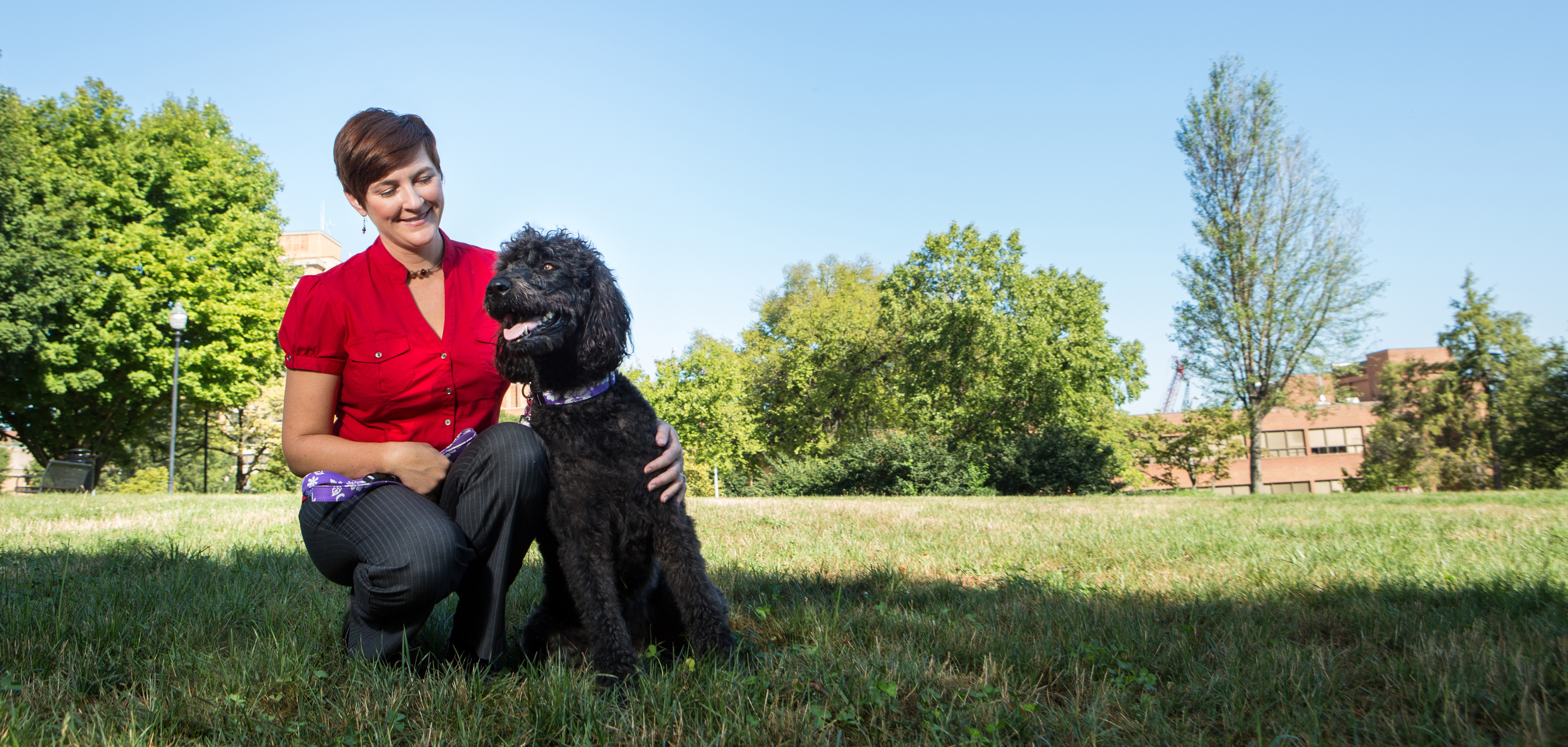By Tyra Haag
“Don’t limit yourself and try new things.”
That’s Taylor Opel’s personal motto. Opel, a military veterinarian and major in the United States Army, is pursuing her master’s in veterinary public health at UT and is set to graduate in May 2017.
Opel grew up on the West Coast, just north of Los Angeles. She always loved animals but admits that she never thought she’d have what it takes to become a veterinarian.
“I was never the smart kid, but I’ve had some excellent mentors along the way,” says Opel. “I taught horseback riding in high school, and it was my riding instructors who encouraged me to apply to vet school.”
Opel earned a bachelor’s in animal science at the University of California, Davis, and went on to Washington State University for her veterinary degree. That’s where she met an Army recruiter who inspired her to join the military in 2008. After veterinary school, her military career took her to Puerto Rico, Arizona, and Kansas.
Opel moved to Knoxville last year and is now in her second year of UT’s Veterinary Public Health program, which is a collaboration between the Master of Public Health program in the College of Education, Health, and Human Sciences and the College of Veterinary Medicine. It is available only to veterinary students, graduate veterinarians, and licensed veterinary medical technicians.
“I came to UT because of the human-animal bond emphasis,” says Opel. “Plus, not many universities offer a veterinary public health specialization. People don’t realize veterinarians are around until something goes wrong. We’re so often behind the scenes that no one knows how important we are to the food supply.”
The USDA Food Safety Inspection Service is the single largest employer of veterinarians in the United States and estimates it will need 500 new veterinarians in the next few years.
Opel has completed more than 150 inspections at food facilities for the armed forces. “In veterinary public health, food safety and defense is a big part of what we do,” said Opel. “We make sure facilities are up to code.”
Opel is at UT under the military’s long-term health education training program—a scholarship program for active duty personnel in the medical fields. It’s meant to encourage medical personnel to achieve board certification or specialization.
“Military veterinarians care for everything from small animals to working military dogs,” she says. “We mainly take care of service members’ and retirees’ pets. Some of the bases even have stables for lesson horses. Other military vet friends of mine have cared for dolphins, Marine Corps mules, and the horses that pull flag-draped caskets for deceased service members.”
As a military veterinarian, Opel does everything all soldiers do, like physical fitness tests and weapons training. But it’s the human-animal bond she treasures most. Opel has treated thousands of animals at various clinics in just eight years.
She’s not sure where the military will send her next, but she hopes to serve overseas in Germany or Japan.
“Hopefully I’ll be teaching at an internship site for military officers who just graduated from veterinary school,” says Opel. “I love working with younger officers and giving them my knowledge and advice.”
She also wants to use her experience in UT’s HABIT (Human-Animal Bond in Tennessee) program to help soldiers suffering from post-traumatic stress disorder. The program is composed of representatives from the College of Veterinary Medicine, private veterinary practitioners, and community volunteers.
“Dogs can really help people who have had traumatic events in their lives,” says Opel. “Service members want to help other service members, so taking this program back to a military base is what I’m most excited about.
“This is my career path until they kick me out or I get too old,” says Opel. “Even if there are setbacks in your life, it’s never too late to start going for something you really want to do.”

